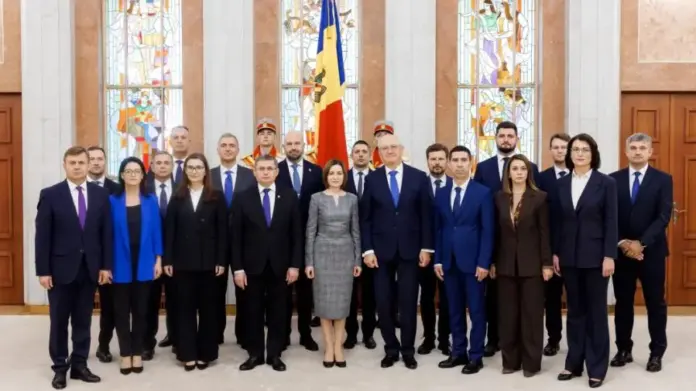Prime Minister Alexandru Munteanu reaffirmed that the government will always respect the Constitution while prioritizing security and resilience as essential pillars of Moldova’s development. He made the statement during the parliamentary Q&A session that preceded the vote of confidence granted to his Cabinet by the parliamentary majority. Lawmakers first questioned the government about the country’s neutrality status amid cooperation with the EU and NATO and the regional instability caused by Russia’s invasion of Ukraine.
Defense Minister Anatolie Nosatii outlined the government’s main directions of action in the security and defense sector.
The new Munteanu Government Program defines national security as dependent on a modern, professional, and well-equipped army capable of responding effectively to current threats. It calls for investment in people and technology, cultivation of a national culture of resilience, improvement of military training, and strengthening of interinstitutional and international cooperation.
Minister Nosatii highlighted that the previous mandate achieved significant progress by increasing the defense budget and launching long-awaited armed forces reforms. “We improved working conditions, strengthened the social package, and provided the resources necessary for soldiers to fulfill their mission in the national interest,” he said.
He emphasized that the government prioritized army modernization by replacing outdated equipment with safer, more advanced technologies, making military service more attractive. “We focused all efforts on ensuring safety, stability, and increasing the National Army’s operational capacity,” Nosatii added.
He underlined that Moldova operates in a complex regional environment marked by war at its border, 11% of its territory outside central control, and the illegal presence of Russian troops on its soil — all posing serious security threats. “We have worked to make citizens feel safe, and we will continue in this direction,” the minister stated.
The government identified seven key action priorities, many supported through partnerships with NATO member states:
- Enhance the attractiveness of military service by improving working conditions, social guarantees, and career opportunities.
- Improve military education, training, and research to promote continuous professional development and technological innovation.
- Strengthen national resilience and security culture through civic engagement, defense awareness, and effective responses to conventional and hybrid threats.
- Boost interinstitutional cooperation across the defense system to ensure coordinated responses to complex threats.
- Accelerate transformation and modernization of National Army capabilities by adapting structures, equipment, and processes to modern requirements.
- Expand international defense cooperation, including participation in peacekeeping missions to enhance operational capacity.
- Advance gradual integration into the European security architecture by harmonizing legislation, adopting common standards, and participating in EU security and defense initiatives.
The governing program also directs Moldova to pursue a smart, balanced, and responsible foreign policy focused on peace, stability, and prosperity. Moldovan diplomacy will protect national interests through constructive dialogue, multilateral cooperation, and strategic partnerships that enhance regional security and economic growth.
The program defines the following foreign policy objectives:
• Strengthen strategic bilateral partnerships and deepen relations with neighboring countries, EU member states, Euro-Atlantic partners, and key regions in Central Asia, Southeast Asia, and the Middle East.
• Expand multilateral cooperation within organizations such as the UN, Council of Europe, and OSCE to promote national interests, reintegration, investment, democracy, and address global challenges such as climate change.
• Align diplomacy with diaspora needs by expanding modern, accessible consular services and supporting Moldovan communities abroad through cultural, educational, and economic projects that strengthen ties with the state and encourage return migration.


